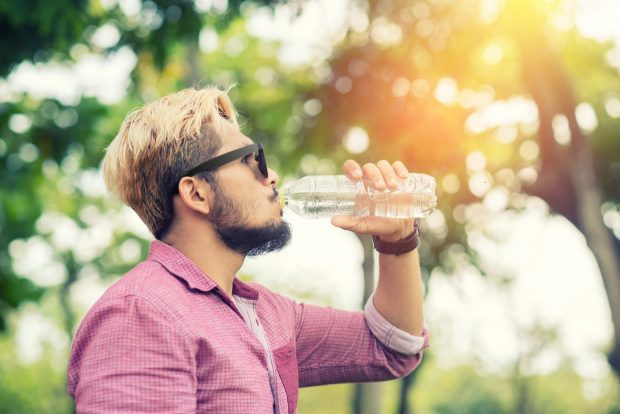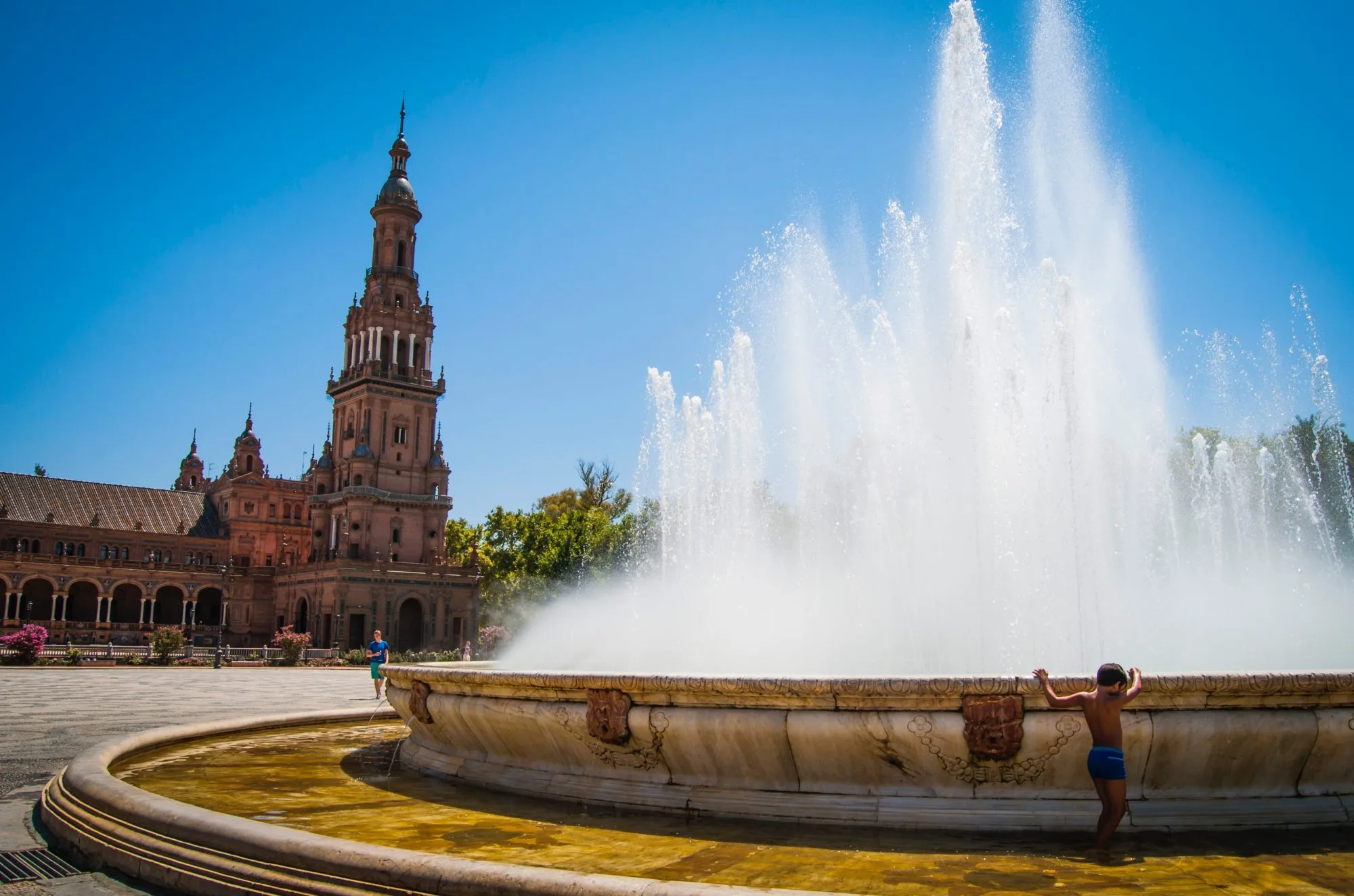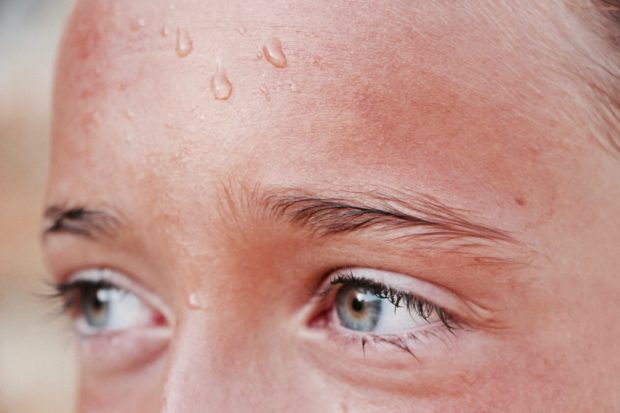Temperatures are soaring across Europe as various countries are experiencing what appears to be the worst heatwave in recent memory.
Various national authorities across Belgium, the Czech Republic, France, Germany, Italy, Poland, Spain, and Switzerland have issued heat warnings and alerts, advising tourists and residents to drink plenty of water and stay out of the sun. According to meteorologists, as hot winds traveling from the Sahara blow across the continent, temperatures are likely to climb above 40 degrees Celsius (more than 104 degrees Fahrenheit).
The last time a European heatwave raised this much concern was in 2003, with over 30 000 people dying across Europe and 15000 people dying in France.
“I’m worried about people who are downplaying this, who are continuing to exercise as usual or stay out in the sun,” said France’s health minister, Agnès Buzyn, in a statement about the latest heatwave that took the country by storm last week. “This affects all of us. Nobody is a superman when it comes to dealing with the extreme heat we’re going to see on Thursday and Friday.”
The heatwave in Europe
On Wednesday last week, Germany, Poland, and the Czech Republic each recorded their highest-ever June temperatures. The French government closed around 4,000 schools on Friday, and they also extended the opening hours of parks and public swimming pools. Viennese authorities installed mist showers in busy sports areas, and they also cooled off their great apes in the zoos with buckets of freshwater. Geneva has sent out brochures aimed at people over the age of 75, advising them on how to keep safe during heatwaves.
If that’s not enough, firefighters in Spain spent Wednesday evening battling a 15,000-acre wildfire in the country’s northeast. Also, on a more humorous side, German police authorities revealed that they had to pull a man on a scooter over as he was riding in the nude on a public road, when asked for an explanation upon being stopped, the man cited the unbearable heat as an excuse for his nudity.
Europe is battling its hottest and driest days in recent memory, and they are somewhat ill-prepared for it.
So what exactly is a heatwave?
The consensus is that a heatwave is an extended period of unseasonably hot weather. The temperature is often five degrees or more than the above daily average maximum. The abnormality continues as the current, hot temperatures in Europe are usually only seen during July and August.
Concerns also rose amongst European authorities when they were informed of the increased frequency and severity of the heatwaves, with French Prime Minister Edouard Philippe saying “Beyond this extreme episode and with climate change, there is one observation: these episodes are getting closer, the abnormal becomes the normal…We must prevent the fact that it will be even worse in the coming years.”
That said, how can we as individuals help combat the rising frequency and severity of heatwaves? Well, according to Météo-France, a French national meteorological service that said the frequency of heatwaves is expected to double by 2050, we could become more proactive in reducing the amount of greenhouse gas emissions (1).
Is climate change to blame?
According to a study by the World Weather Attribution group, Europe’s 2018 heatwave was a result of human activities that led to climate change. Furthermore, the 20 warmest years since records began have all been within the past 22 years, with 2018 being included in the top four.
As the world continues to get warmer, extreme weather will become more likely. However, it’s important to remember that temperatures vary so naturally that it would be difficult to definitively pin the current heatwave on climate change.
What are the effects of a heatwave?
Last week, two people died in Spain from suspected heatstroke and three swimmers died on beaches in France from what appears to be a cold water shock.
Heat exhaustion vs heatstroke
During a heatwave, the human body’s ability to regulate its own temperature and keep it at safe levels compromised. As a result, the body temperature rises, and heat exhaustion may set in. The body then begins to lose salt and water. People may then experience symptoms such as confusion, dizziness, fatigue, headaches, muscle cramps, and vomiting. If not immediately addressed, heat exhaustion can soon lead to heatstroke which is much more serious.
Heatstroke happens when the body temperature hits above 40C (104F). Once this happens, you are likely to experience hot, dry skin, a rapid heartbeat, confusion, slurred speech, seizures, and even loss of consciousness. A delay in immediate medical attention risks permanent damage to vital organs as well as death.
Those at risk of either heat exhaustion or heatstroke are children under three, individuals over 75, pregnant women and, anyone taking medications that affect sweating and temperature control, and anyone with preexisting health conditions that include heart disease.
If you believe that you may be suffering from heat exhaustion, move to a shady location. You should also strip off a few articles of clothing and apply cool, wet towels to the body. You should also be sure you’re drinking enough water, or sports drinks that can provide you with electrolytes. If the symptoms persist, seek medical attention immediately.
Their form of treatment may include cooling the patient down using ice baths and ice packs. They might also use cool mists, cooling blankets, and even administer fluids.
Coldwater shock
When the human body comes into contact with very cold water, there is an immediate shock. This shock causes a response whereby involuntary inhalation occurs and this then results in an accidental drowning. Another way in which loss of life can occur is through hydrocution whereby blood vessels are dilated by the heat contracting suddenly and this then may cause cardiac arrest.
That said, one should never ever jump straight into cold water. Rather, they should allow the body to get accustomed to the temperature change by slowly and gradually entering the water.
Damage to infrastructure
It may be hard to believe, but Europe is not built to survive a heatwave.
In Germany, the road surfaces of autobahns (expressways) are reportedly deteriorating and rail tracks are also, apparently, buckling. As a result, the authorities have imposed speed limits as a safety precaution.
Environmental effects
Spanish authorities have issued fire alerts for regions stretching from the west to the northeast of the country. That said, they are not the only country at risk of wildfires during this boiling summer.
According to statistics from the Emergency Management Service of the European Union Agency Copernicus, the number of wildfires across Europe as of 1 March has already far exceeded those in the entire 2018 season (3).
Skin concerns
In addition to the increased risk of being sunburned, a heatwave also increases the risk of premature aging and even skin cancer which is why it’s important to practice effective sun protection.
Surviving a heatwave
According to reports, the heatwave is likely to cool down soon and countries across Europe are expected to experience some form of relief in the coming days. If the weather does hit another blistering high, there are precautions you can take to make yourself more comfortable.

Always drink water
You need to stay hydrated if you’re looking to survive a heatwave in Europe. By hydrating, we mean consuming enough water, not alcohol or caffeinated or sugary drinks. This will only serve to further dehydrate the body.
France recently installed more than 1,000 new drinking fountains across Paris and officials are also set to give out free water bottles to the homeless. If you’re still battling with drinking enough water, you can also eat foods with high water content such as watermelon, cucumbers, and tomatoes.
Cut back on an exercise
You may want to cut back on your exercise routine, or at least ensure that you don’t work out during a heatwave – unless you’re going swimming in cool waters.
If you really do want to do a quick run or cardio workout, try to limit it to only doing so during the morning or evening as they are the cooler parts of the day.
Dress bright and light
What’s the perfect wardrobe for a European heatwave? It needs to be made of natural fibers, be loose-fitting, breathable, and lightly-colored so that it can reflect the heat.
Also, if you’re a tourist, make sure that you’re not showing too much skin. Doing so may have you banned from entering any religious monuments. Remember to also include a wide-brimmed hat and sunglasses with your outfit.
Driving tips
Before you set off in your car, make sure you check the traffic report. This will give you a general idea of how long you may have to sit in the car. It’s advisable that you plan your car trip for cooler hours during the day. You should also make sure that you carry enough water for everyone in the car.
Lastly, never ever leave children or pets inside a parked vehicle in the sun. That said, if you have parked your car in a hot spot, be sure to let the air out before setting off, and be sure that the seats aren’t too hot to sit in.
Keep cool when you’re out
When you’re walking the streets of Europe, do so with a damp cloth on the back of your neck. You can also visit a local bathing fountain and splash your face and arms with the cool water.
Keep your home cool
You don’t need an air conditioning system to keep your home cool. Simply keep the blinds down low and the windows open. This will allow cool air to circulate through the house without the inclusion of direct sunlight.
Pet advice
If it’s too hot for you to place your hand on the road for longer than five seconds, then it’s too hot for you to be taking your pet for a walk.
Spend the afternoon indoors
The sun is more intense between the hours of 11 am to 6 pm. Thus, it’s best to stay indoors during this time. Rather, plan your outings to museums and restaurants for either early morning or after 6 pm.
Stay alert
It’s important to constantly stay alert during a heatwave.
Keep an eye out for others and watch for signs of heat stroke or heat exhaustion. If you begin to battle heat exhaustion, try to cool down with the above-mentioned tips. If that doesn’t work, seek medical attention immediately.




![women [longevity live]](https://longevitylive.com/wp-content/uploads/2020/01/photo-of-women-walking-down-the-street-1116984-100x100.jpg)










